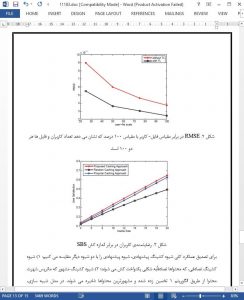Abstract
Proactive caching is a promising technology in 5G wireless networks. Small-cell base stations (SBS) can cache popular contents to assist the macro base station, and proactive caching are considered to cope with the weak backhaul links of SBSs. However, obtaining popular contents and making the optimal caching strategy may be challenging. In this paper, a novel learning-based approach is proposed, in which regularized singular value decomposition (RSVD)-based collaborative filtering (CF) is used to estimate the content popularity and transfer learning (TL) is adopted to improve the estimation accuracy. Then considering the interaction between users and SBSs, a distributed iterative algorithm is designed to make a caching strategy with the goal to maximize the number of users who can be served by neighboring SBSs. Experiments have been conducted to evaluate the performance of the proposed algorithms and simulation results demonstrate the effectiveness of our learning-based approach for proactive caching.
I. INTRODUCTION
With the development of mobile communications, mobile smartphones and social networks, a wide variety of online services are provided through mobile terminals, which leads to explosive and rapid growth of mobile data [1]. As a result, the excessive demand for data is draining the limited spectrum resources of wireless transmissions, especially the wireless links between base stations and users, and the wireless backhual links between base stations and the core network. To cope with this problem, a promising solution is to cache popular contents at the edge of mobile networks.
V. CONCLUSION
In this paper, we propose a novel learning-based approach for proactive caching. In the estimating stage, the proposed approach optimize the traditional CF by RSVD and use TL to improve the estimation accuracy by ingeniously transferring the prior information from social networks. Then, in the caching decision-making stage, we consider the interaction between users and SBSs by establishing the utility function of every SBSs, and a distributed iterative algorithm is designed to make a caching strategy based on the purpose to maximize the expected number of users who can be served by neighboring SBSs. Finally, experiments are conducted to evaluate the performance of the algorithms, and simulation results demonstrate the effectiveness of our learning-based approach for proactive caching.










